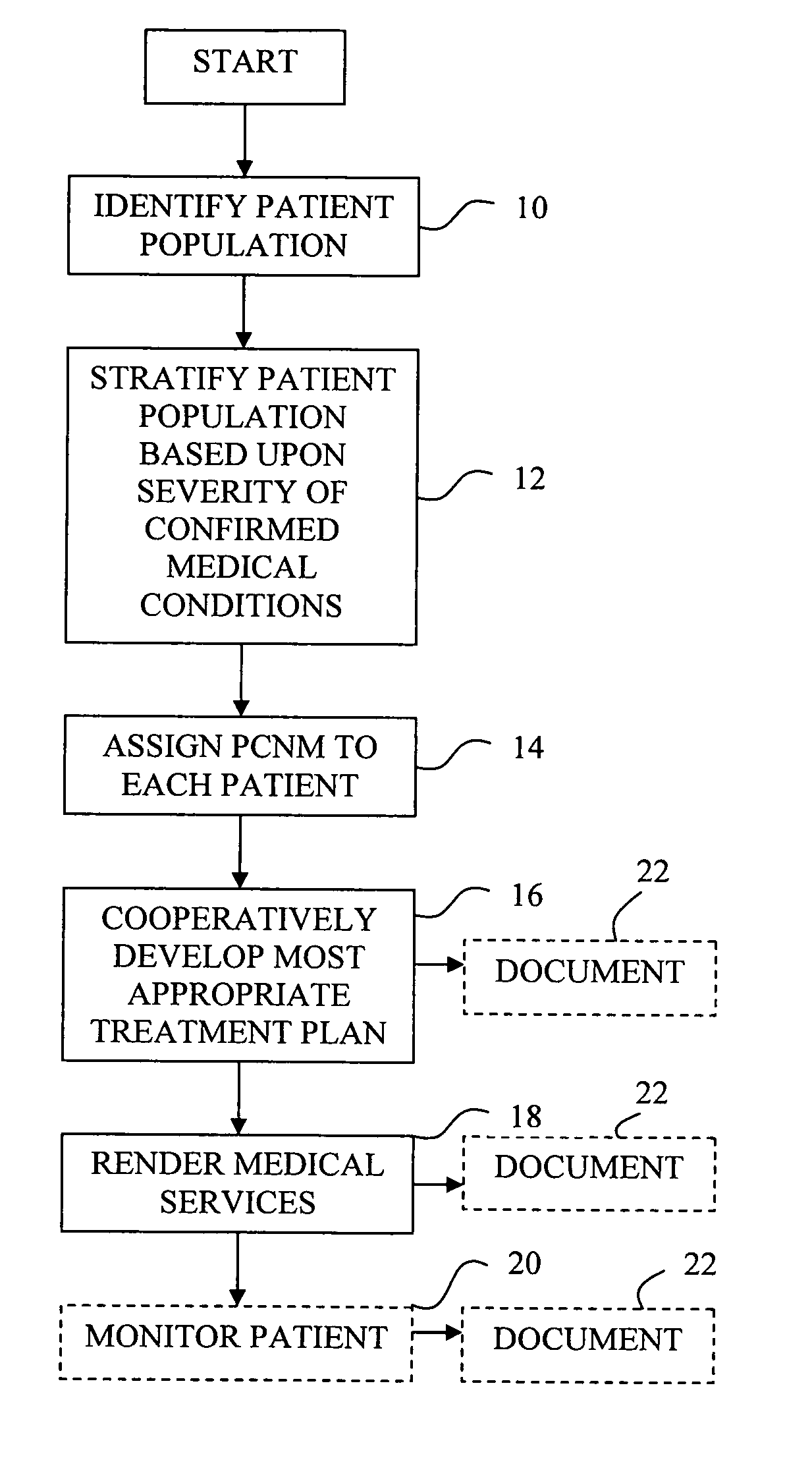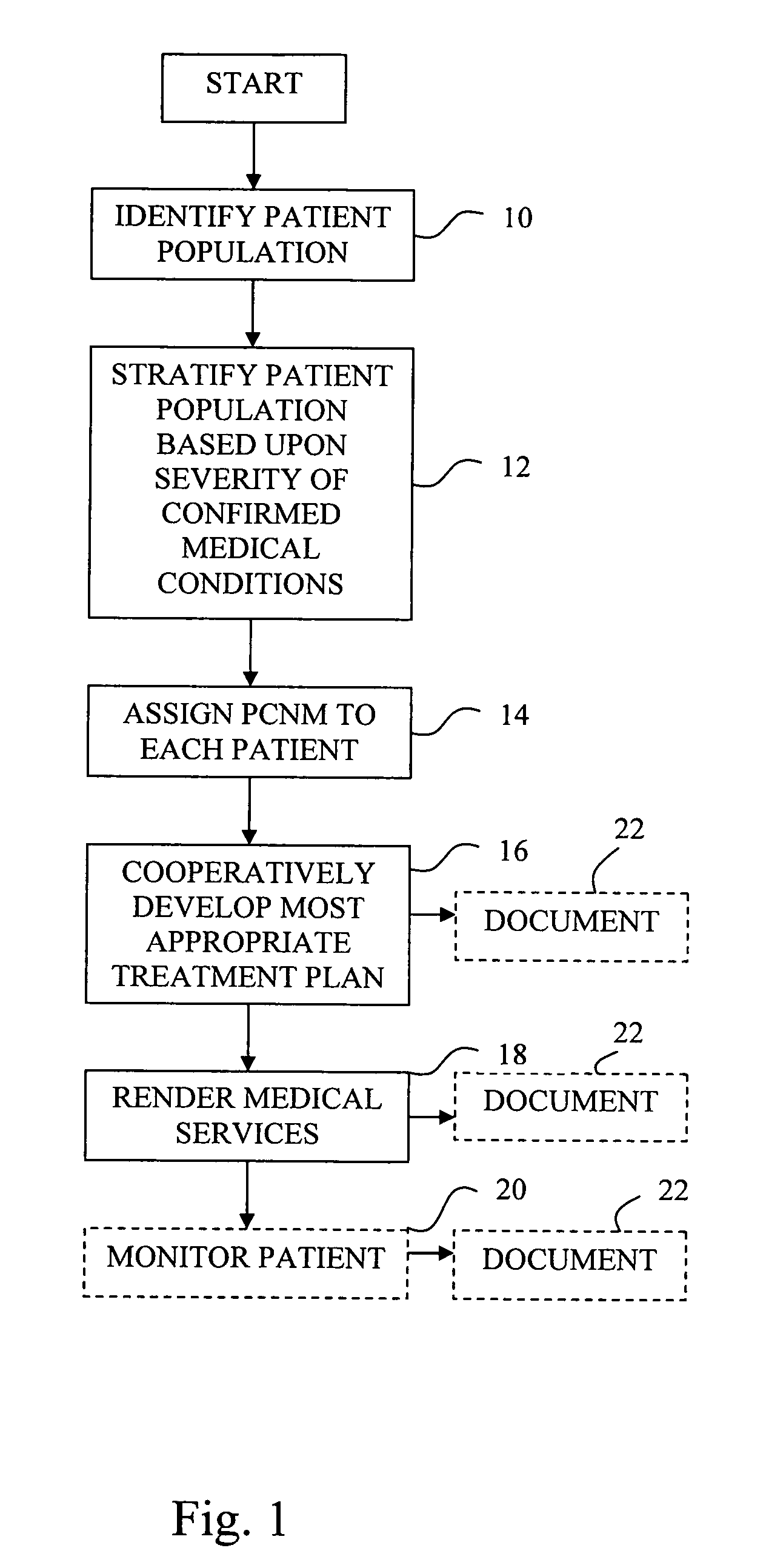System and method of prioritizing and administering healthcare to patients having multiple integral diagnoses
a technology for multiple integral diagnoses and patients, applied in healthcare informatics, instruments, therapies, etc., can solve the problems of poor clinical outcomes of low quality of life, and lack of a system for facilitating healthcare treatment for patients with multiple integral diagnoses, and achieve the effect of optimal health status
- Summary
- Abstract
- Description
- Claims
- Application Information
AI Technical Summary
Benefits of technology
Problems solved by technology
Method used
Image
Examples
Embodiment Construction
[0017] The present invention is directed to methods of effectively administering healthcare to patients with multiple integral diagnoses. To this end, such patients are enrolled in a Priority Care Management Program (PCMP). The goals of the PCMP are to improve the patients' clinical outcomes and health-related quality of life, while at the same time minimizing medical costs, by increasing patient adherence to the physician established treatment plan for the management of the patient's medical conditions. The result is decreased numbers of avoidable hospitalizations, decreased numbers of hospital readmissions, decreased numbers of Emergency Room visits, decreased patient mortality, and improved patient and physician satisfaction.
[0018] According to a preferred embodiment illustrated in FIG. 1, a patient population is first identified in step 10 which will receive this healthcare. The identification of such patient population in step 10 may be achieved by identifying patients with Mu...
PUM
 Login to View More
Login to View More Abstract
Description
Claims
Application Information
 Login to View More
Login to View More - R&D
- Intellectual Property
- Life Sciences
- Materials
- Tech Scout
- Unparalleled Data Quality
- Higher Quality Content
- 60% Fewer Hallucinations
Browse by: Latest US Patents, China's latest patents, Technical Efficacy Thesaurus, Application Domain, Technology Topic, Popular Technical Reports.
© 2025 PatSnap. All rights reserved.Legal|Privacy policy|Modern Slavery Act Transparency Statement|Sitemap|About US| Contact US: help@patsnap.com


